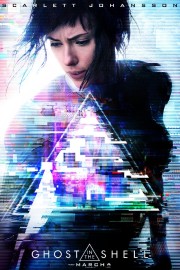Ghost in the Shell (2017)
Honestly, I could watch Rupert Sanders’s live-action remake of “Ghost in the Shell” all day, and not just because it stars Scarlett Johansson as Major. The truth is, the “Snow White and the Huntsman” director and his visual team have created a richly-detailed and imaginative world that ranks with the Mamoru Oshii 1995 masterpiece, and its 2004 sequel, as a world to get lost in. They treat the mixture of organic and artificial humanity as an important part of the storytelling in adapting the Manga by Shirow Masamune with screenwriters Jamie Moss, William Wheeler and
Ehren Kruger, which it very much is on every level. When your protagonists are themselves a combination of artificial intelligence and human biology, it’s necessary to give them a universe that reflects that, and if the script were on par with Oshii’s film, we would have a great work of American science fiction filmmaking along the lines of “Dark City” and “A.I. Artificial Intelligence.” That isn’t to say that Sanders’s film doesn’t offer anything on an intellectual level, however, because his film does provide something more than just eye candy.
The film begins by showing us the process in which Major, Johansson’s character, is created. Rescued from a terrorist attack, only her brain was able to be saved, and it is nestled into a synthetic body. She is the first of her kind, the deepest combination yet of the human thinking process and an artificial intellect, with her soul, her ghost, running the show. She is sent to Section 9 of the Department of Defense implanted in her with the desire to stop terrorism. When attacks begin occurring against scientists at Hanka Industries, the robotics manufacture that Major was created by, a mystery begins to unfold. At the same time, Major is changing, and she’s starting to have glitches on a regular basis that require her to see Dr. Ouelet (Juliette Binoche), her creator, to find out what’s wrong. These glitches become more serious and concerning for Dr. Ouelet and Batou (Pilou Asbæk), Major’s partner, after she, as part of her investigation, does a “deep dive” into the mind of an artificial geisha who was involved with the attack. It’s here where she comes into contact with Kuze (Michael Pitt), the cyberterrorist responsible for the attacks. But there’s something more about their connection that will lead Major down a rabbit hole into discovering who she was prior to the attack that made her into what she is now.
There was a controversy of whether the film was another example of Hollywood whitewashing when it was announced that Johansson was cast as Major, but while the film’s origin is from Japan, I don’t know that you could consider the character of Major Japanese based on her look in the original movie. That controversy is not a determination of whether “Ghost in the Shell” is good moviemaking, however, and I don’t think it works in a good way, or bad way, in conjunction to the film as a whole. I will saw that Johansson’s character is a natural extension of what type of role she played in “Lucy” and as Black Widow, and she succeeds at projecting that same steely nature here. She is only as good as the film around her will allow, however, and while it’s ultimately not on the remotely same level as its predecessors, there are some ponderous and palpable emotional beats about the nature of continuing depth of connection between humanity and artificial life to go with a beautifully-produced visual and musical experience (the latter provided by Lorne Balfe and Clint Mansell) that has more to offer than you would expect.










